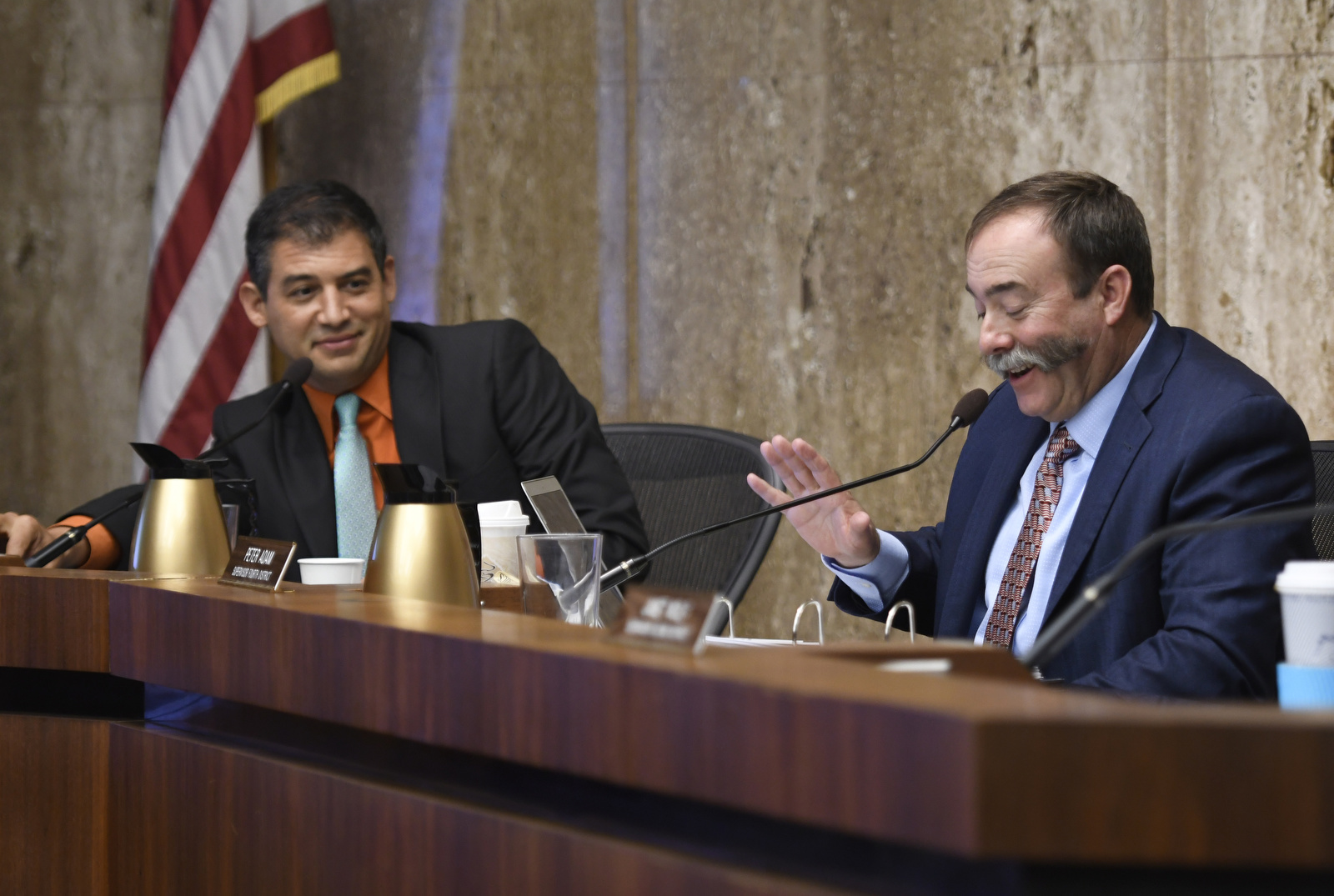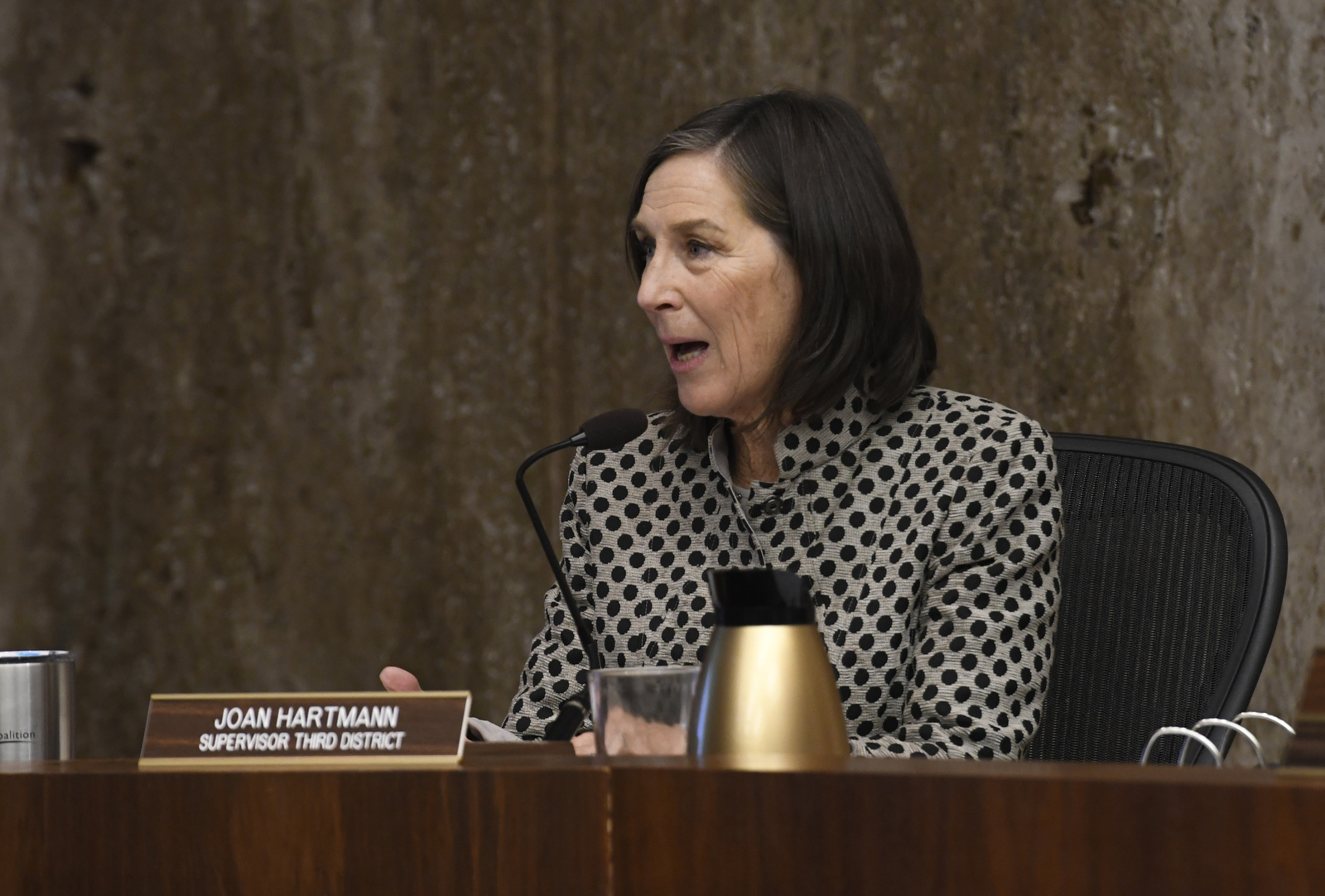County Supervisors Reverse Course and Reinstate Library Admin Fees
Adam Suggests a Library Tax for Future Funding

If you look up real quick, you might see pigs flying. The impossible occurred just before noon at the county supervisors’ hearing today when fiscal conservative Peter Adam proposed a specific sales tax to fund county libraries — this after voting against every negotiated union contract on the agenda, including small raises to county firefighters that included a give-back on pensions. “My staff has figured a one-tenth of one percent tax would raise $7 million, double what we’re talking about currently,” Supervisor Adam said. Supervisors Joan Hartmann and Das Williams immediately chorused: “You’d support a tax? Put your name on it?”
What they were talking about were severe cuts to the operating hours of five small libraries occasioned by the supervisors’ decision in April to siphon 5 percent from library fees as a fund for failing libraries. What Adam termed “either a very brilliant or very stupid idea” — his tax would replace the current county per capita keeping libraries open — may perhaps have been inspired by a passionate defense of Goleta’s library reserve by Supervisor Janet Wolf.

After Williams proposed closing the hole the 5 percent had caused with funds from Goleta’s reserve — he believed a good part of it was county money and also that Goleta claimed a disproportionate amount of the per capita — Wolf disagreed, saying its provenance was unknown and it would be “wrong” to take what is likely taxpayer money. Goleta Councilmember Michael Bennett rose to state he was fairly certain it came from unspent, and carefully managed, Goleta library monies from years long past and that the area’s library tax money was a good part of it. Both Supervisors Steve Lavagnino and Joan Hartmann warned against “touching” taxpayer money meant for one library and using it for others.
Buellton’s Judith Dale provided a solution once again, though her last set of advice led to the current disarray. This time, she suggested that the supervisors shelve her previous idea and keep the status quo, which was also the staff recommendation and Supervisor Lavagnino’s motion, and ask staff to look into a long-term funding plan for the coming years. Adding to that, Joan Hartmann emphasized the need to re-examine the per capita system: Should it go toward library-users or branch libraries in the unincorporated areas only? Should cities pay for their libraries? Those questions will form part of the work of the committee, composed of two supervisors, county staffers, and the zone library administrators.

The library funds will return as part of next week’s budget talks, which Hartmann cautioned would include other departments with special expenses: mental health, criminal justice, and social services among them. Mona Miyasato, the county’s chief executive, said there might be about $4 million in one-time money and about $380,000 for ongoing needs.
Pam Antil, assistant city administrator for Santa Barbara who was in the audience, shrugged when asked if she thought the city’s $150,000-$190,000 shortfall — losses to the city from unpaid library administration expenses — would be covered. “We won’t really know until next week.”
Editor’s Note: This piece was corrected on June 7: The motion to form a new committee included two supervisors but not the Library Advisory Committee; staff will return with information on the committee’s composition.



